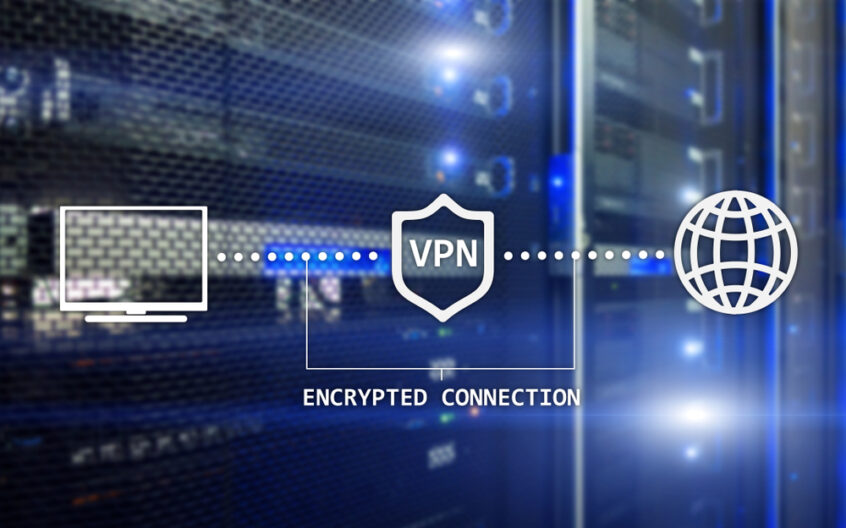The adverts are all over the internet. Their usage is widespread across the entire world. When it comes to internet acronyms, there are too many to list. But there is one that’s very common to many who are more well versed – and that’s VPN.
You might have heard a lot about VPNs – or maybe this is the first time you’ve ever come across the term. Either way, you’ve probably got a lot of questions.
They are extremely useful tools that help transform the way you use the internet, including your browsing, data collection and location.
In this article we explain what a VPN is, how they work and why you should consider using one.
What is a VPN?
VPN, or ‘Virtual Private Network’, is a service that safeguards your internet connection and privacy when you’re browsing the web. A VPN encrypts your internet traffic and disguises your online identity.
Cybercrime is on the rise and more people are being caught out online due to being unprotected. In a world where more third parties are trying to track your activities and steal data, VPNs offer real-time encryption that keeps you surfing safely.
They’ve existed for a long time, but have grown in usage thanks to being more readily available and promoted by web security companies. They’re most commonly used to help people access content with an extra level of protection.
What is an IP address?
An IP address (Internet Protocol address) is like your house address. It is a digital locator. Just as you can write an address on an envelope and it arrives through the front door, your IP address does the same on the internet. Which is why it makes sense not to expose or advertise this to websites, would-be hackers or just nosey Internet Providers.
How VPNs work
A VPN makes your IP address invisible, check your System Preferences as every Mac or mobile device has one if you are able to use or get internet located information.
What does this mean? Well, it means that your internet location is hidden to other users when you’re using the internet. It does this by letting the network redirect it through a specially configured remote server run by a VPN host.
In turn, this means that your Internet Service Provider (ISP) cannot see what websites you visit or what data you’re sending and receiving online. This also extends to any other third parties that are connected to your network or service provider.
The main reason for using a VPN is that all of your data is sent through a secure tunnel. This means that not only does your ISP not get to see the data, but more importantly when you find yourself on an insecure network, such as public Wi-Fi, would-be thieves cannot view any of the data that you are either accessing or inputting. This includes passwords you enter, websites you visit and so on.
Put simply, a VPN is a filter that turns your data into unreadable data and protects you from the addition vulnerabilities that using a public network may introduce.
It’s important to note though that it won’t protect you from scams like phishing attacks so always be on your guard!
Should you be using one?
You may think that there’s no issue with your Internet Service Provider having access to your data. More often than not, you’d be right. But you’re not in control of where your data is sent – this could be to advertisers, the police or the government. Also, ISPs are susceptible to cyber-attacks. If they’re attacked, you’re attacked.
If you find yourself connecting to public Wi-Fi networks regularly, at a workplace, coffee shop or shopping centre – it’s even more important. You never know who may be monitoring your data on these networks or what they’re looking for. Your passwords, personal data and bank details (all on your mobile phone in the modern day) may be being put at an unacceptable level of risk.
How Apple’s VPN works
In 2021, Apple offered their own built-in VPN to users of their devices. Secure access to private corporate networks is available in iOS, iPadOS and macOS using established industry-standard virtual private network (VPN) protocols.
It works the same as any other VPN – providing a block on your personal data that allows you to block advertisers and others from viewing the personal data your phone contains.
Comparatively, Windows machines and Android phones have no similar features. This means that users of non-Apple devices are at a higher level of risk every day when they’re online.
Are there alternatives to using a VPN?
Obviously, you don’t have to use one at all. A large proportion of internet users still aren’t using VPNs when they browse. But, this is likely to change as online cyber criminals continue to cause havoc for individuals and organisations all over the world.
Alternatively, there are proxy servers – but, VPNs encrypt your data whilst you’re online in real-time. Proxy servers can’t do this. If you want to use all websites more securely, especially if you bank and shop online, a VPN is the better option.
Do you need help securing your Mac from risks online?
You’ve invested a significant amount of money in your Mac or Apple device. By using a VPN, you can rest easy knowing your data is safe. We offer installation, support and explainers for those who want to use a VPN but aren’t sure how.
Our team are ready to help answer any questions you have about Macs, VPNs or anything to do with Apple tech. Call us now to speak directly to an expert.

